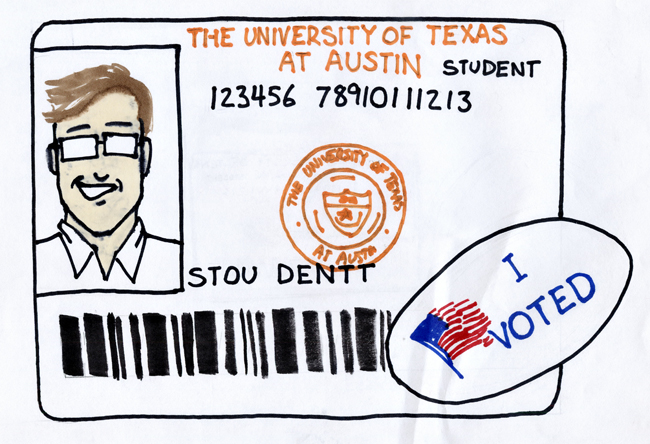Presidential candidate Hillary Clinton gave a speech in South Texas on June 4 in which she lent her support to universal voter registration, a position which few of the professional political class have loudly or widely embraced.
Universal voter registration is a proposal for either state or federal government to automatically add those eligible to voter registration lists. In other words, when a citizen turns 18, they would no longer need to fill out a registration form — the government would automatically register them. Universal voter registration makes sense. The responsibility should be on the government to provide citizens with the means to vote — not the other way around.
Universal registration would take an extensive amount of work. It would require voters to consistently update their personal information, such as voting address. It would also require federal, state and local governments to perform detailed record-keeping.
But, the proposal would eliminate many of the redundancies and bureaucratic issues that hamper the efficiency of voting in the U.S. Voter registration drives produce hundreds of forms — many of them inaccurate — require extensive processing by local registration entities and cost campaigns and nonprofit organizations thousands of dollars to execute. With universal voter registration, these drives would no longer be necessary.
Universal registration could also have the practical effect of limiting voter fraud, a problem which has been a key tenet of the arguments for Voter ID legislation. If every American’s voter registration is tied to legitimate government data, such as a social security number, it would be much harder to fake a vote, allaying concerns of Gov. Greg Abbott, who once stated, “In Texas, evidence of voter fraud abounds.”
While Clinton likely raised the issue to benefit her campaign, the debate is worth having. As voting laws around the country become increasingly restrictive, it is encouraging to see a major candidate endorse a radical solution to the often confusing process of voter registration and confront the relatively stagnant numbers of registered voters.
While universal registration may be a long way from final passage — let alone, debate in Congress or the Texas Legislature — UT students should promote Clinton’s proposal and make their voices heard for meaningful electoral reform in Texas.
The administration of former Student Body President Kori Rady and Vice President Taylor Strickland made this a large part of their platform, using the State Relations Agency to advocate for a change in the law. While Strickland and Rady were ultimately unsuccessful with their push to amend the law, Clinton’s renewed focus on voting rights should breathe new life into the UT campus’ efforts.
While universal voter registration may be a long way off, UT students should give a sustained push toward basic voting rights, which should include the ability to vote using a student ID. Our students should not have to have a driver’s license or a handgun to cast their ballots. Our state government should uphold the ideals of universal voter registration, namely the government should never restrict the right to vote — only strengthen it.
Fountain is a government senior from Pelham, New York.





















